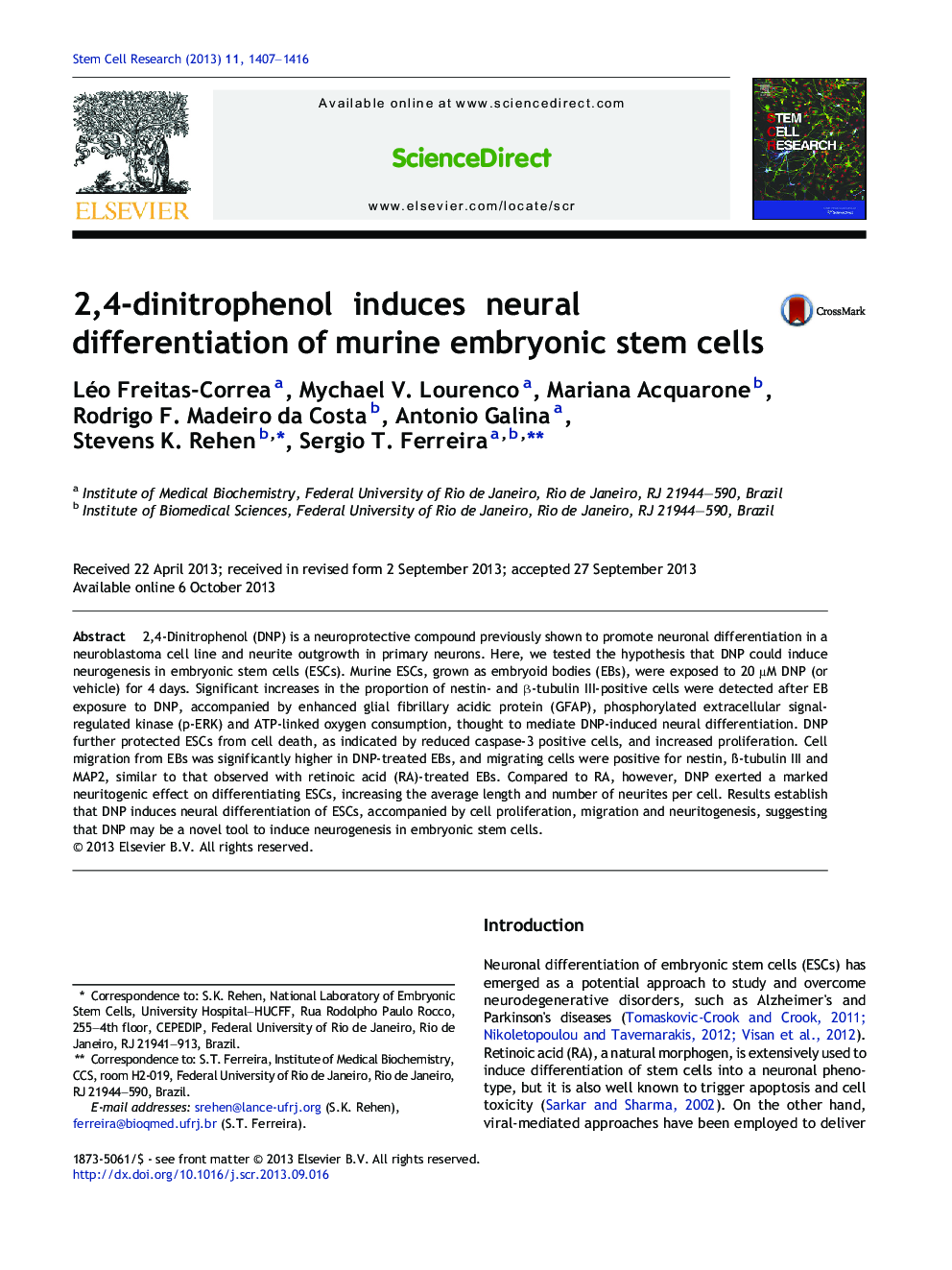| Article ID | Journal | Published Year | Pages | File Type |
|---|---|---|---|---|
| 10891295 | Stem Cell Research | 2013 | 10 Pages |
Abstract
2,4-Dinitrophenol (DNP) is a neuroprotective compound previously shown to promote neuronal differentiation in a neuroblastoma cell line and neurite outgrowth in primary neurons. Here, we tested the hypothesis that DNP could induce neurogenesis in embryonic stem cells (ESCs). Murine ESCs, grown as embryoid bodies (EBs), were exposed to 20 μM DNP (or vehicle) for 4 days. Significant increases in the proportion of nestin- and β-tubulin III-positive cells were detected after EB exposure to DNP, accompanied by enhanced glial fibrillary acidic protein (GFAP), phosphorylated extracellular signal-regulated kinase (p-ERK) and ATP-linked oxygen consumption, thought to mediate DNP-induced neural differentiation. DNP further protected ESCs from cell death, as indicated by reduced caspase-3 positive cells, and increased proliferation. Cell migration from EBs was significantly higher in DNP-treated EBs, and migrating cells were positive for nestin, Ã-tubulin III and MAP2, similar to that observed with retinoic acid (RA)-treated EBs. Compared to RA, however, DNP exerted a marked neuritogenic effect on differentiating ESCs, increasing the average length and number of neurites per cell. Results establish that DNP induces neural differentiation of ESCs, accompanied by cell proliferation, migration and neuritogenesis, suggesting that DNP may be a novel tool to induce neurogenesis in embryonic stem cells.
Related Topics
Life Sciences
Biochemistry, Genetics and Molecular Biology
Biotechnology
Authors
Léo Freitas-Correa, Mychael V. Lourenco, Mariana Acquarone, Rodrigo F. Madeiro da Costa, Antonio Galina, Stevens K. Rehen, Sergio T. Ferreira,
